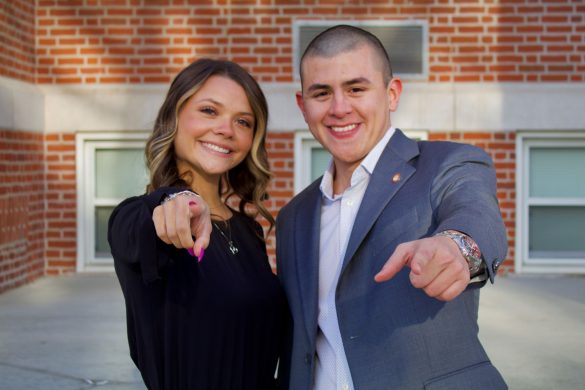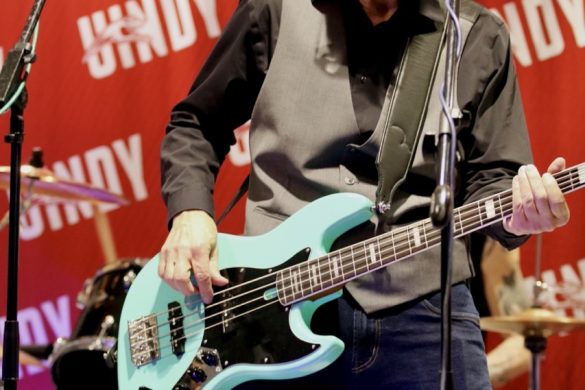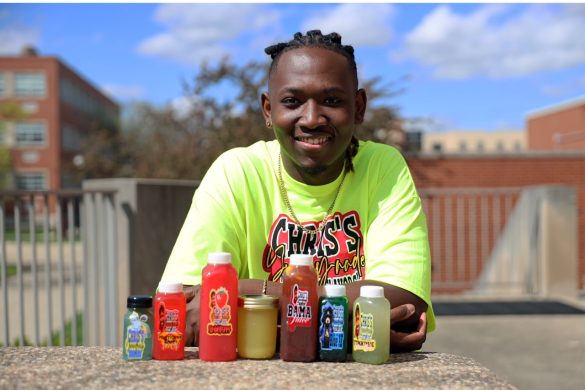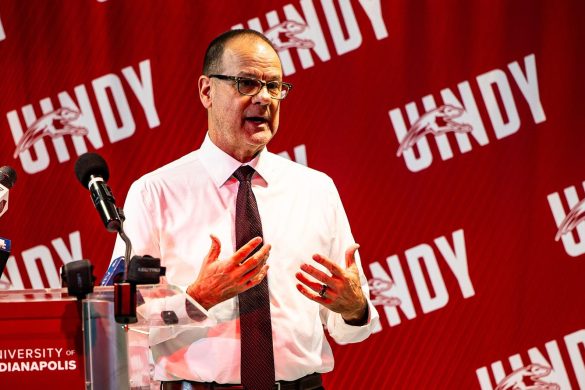The University of Indianapolis held a public forum debating the different viewpoints of the Religious Freedom Restoration Act on April 6 in UIndy Hall. The discussion was held before the Final Four Championship and during halftime. Assistant Professor of Sociology Amanda Miller and University Chaplain, Assistant Professor of Philosophy and Religion and Director of Lantz Center Jeremiah Gibbs led the discussion.
After a quick introduction from Miller, Gibbs delved into the history of how religious freedoms and the RFRA laws came about. He then explained how the government can restrict religious freedom and gave real-world examples of court cases involving the topic. One such case in 1990 involved a decision made by the Supreme Court about Native Americans who used peyote as part of their religion. The Supreme Court decided that if the government found that a law was neutral and applicable, it could restrict religious freedom.
In small groups led by UIndy faculty, students were given a paper with either the words Duke or Wisconsin on it. They were told that if they had Duke, they had to argue for the case. And if they had Wisconsin, they had to argue against it. The leaders informed the students about court cases that have occurred in the past, and then students debated the cases from one side or the other.
After the first debate, Miller explained how these court cases applied to the Indiana RFRA and why it is such a large topic in the news compared to other religious freedom laws. She explained to the audience that the Indiana law was much more general and did not have specific language saying that it could not impinge on civil rights. Once again the leaders gave the students circumstances with which they could either agree or disagree and let them debate the issues.
Senior human biology major Anthony Glidewell said that he thinks Indiana should take steps to prevent other discriminatory laws from happening again.
“We should all do more research and look at our own history in order to prevent future bills like it [the Indiana RFRA law],” Glidewell said.

President Robert Manuel and Vice President of Student and Campus Affairs and Dean of Students Kory Vitangeli draw a student’s name for the raffle to win tickets to the Final Four Championship. The event was April 6. Photo by Kameron Casey
The second debate was followed by Gibbs explaining the recent amendment to the Indiana RFRA law. According to Gibbs, the new clause states that the RFRA law cannot be used to discriminate against protected classes and the LGBTQIA community.
Gibbs said that he was worried about the conflict that erupted before the new amendment was passed.
“I’m very concerned that both religious persons and LGBT persons are feeling very threatened by one another right now,” Gibbs said. “[I hope] that they will be able to see one another not as enemies, but as persons with competing claims and interests that sometimes can’t all win, that they can see the humanity in each other.”
As the first half of the Final Four Championship ended and halftime started, one student from each group had the chance to summarize what the group had learned from the event. Sophomore international relations and German major Megan Ramp spoke for her group.
“As I watch the city grow, I feel like it [the Indiana RFRA law] took us back 50 years in time,” Ramp said. “Indiana has the potential to grow in so many ways. There are so many new businesses coming in, and we have a cultural trail that cities from all around the world come to observe. Making a statement like it [the Indiana RFRA law] kind of draws people away from the area. It’s not a good decision, economically, politically or morally.”
According to Miller, the RFRA forum was not only an excellent experience for UIndy students, but also for herself.
“I thought [the event] was very important to help students see that we can have civil disagreement about political issues and also learn about the viewpoints of others,” Miller said. “So to get to facilitate something like that is a privilege.”
The public forum was created soon after President Robert Manuel released a statement on March 31 regarding the Indiana RFRA law.
In it, Manuel said that all people should be treated fairly, and that UIndy does not support a law that could negatively affect the rights of certain groups on campus.
Manuel said that the RFRA forum was a great opportunity to discuss in a safe environment all of the differing sides of the law.
“Civil debate is the center of real democracy,” Manuel said. “The sadness I see in society is one side yelling at another, not one side talking with another. What we’re trying to model at the university is civil debate and conversation. We’re not preaching from one side or the other. We’re simply trying to get people to make decisions that are in alignment with their conscience, their spirituality and their sense of who they are as a citizen, and be comfortable with that. That’s the goal of all of this.”








